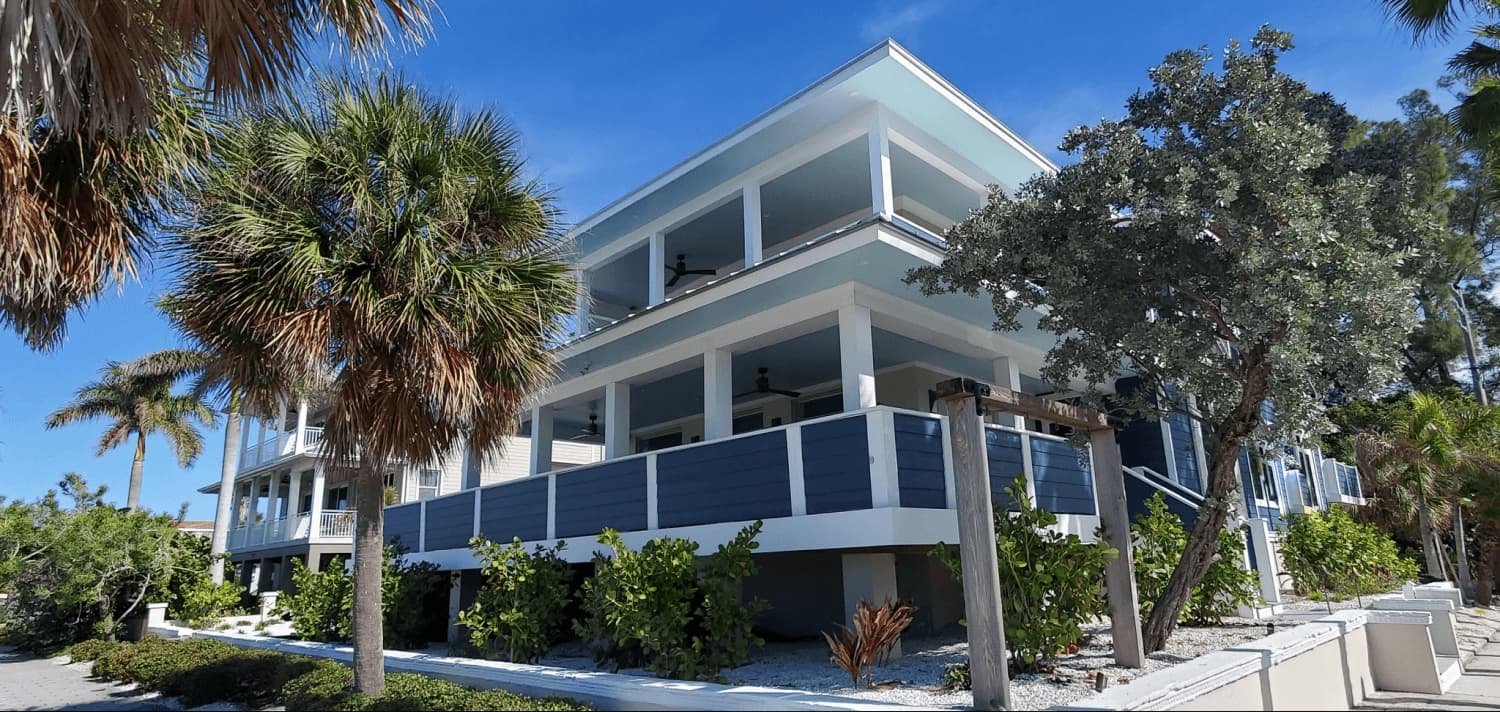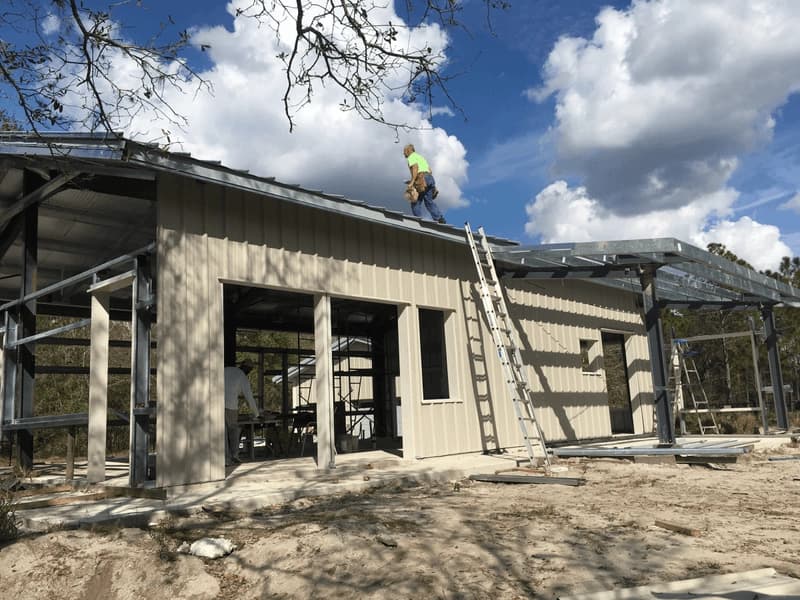The Ultimate Guide to Condo Conversion Process

In large cities, the condo market is a popular option for those searching for cheap accommodation. Many investors and developers decide to turn old buildings into condominiums when there's a huge demand. Well, these transformations of existing buildings are easier compared to building new ones from ground up which usually takes longer, costs more, and is riskier.
Knowing the condo conversion process is crucial when approaching such a project. This includes vacating the building, associated fees and expenses, regulations, project timing, etc. Let's look into the general procedures and crucial factors to be aware of. We will also try to provide you with an estimated cost and duration of condo conversion. Keep up!
What Is a Condo Conversion?
Condominium conversion is the process similar to converting one large house into many tiny houses for sale. This is typically observed in apartment complexes. However, it can also occur in offices, hotels, parking lots, industries, and other establishments.
When to Do a Condominium Conversion?
The primary motivation for people to convert multi-family buildings or apartments into condos is financial gain. It's a popular option for building owners and real estate investors. The reason for its popularity is each condo can generate more revenue than renting out the entire property.
What Are Some Pre-Conversion Factors to Consider?
Even though it can seem easy, there are a few crucial decisions you must make before you can convert your house into a condo. Let's talk about some of the most important considerations:
Consulting with a Legal Expert
You can talk with a real estate lawyer before converting building spaces into condos. They are fully aware of any local laws that may have an impact on the conversion process. They may also provide detailed instructions regarding the whole procedure.
Financing
Budgeting and financing are the most crucial factors in a condo conversion. To be on the right track, speak with a mortgage broker first. Their expertise will help you understand various loan expenses, including debts, interest rates, and closing costs. Before you sign any agreements, this is a must-perform task.
Vacating the Property
One of the biggest challenges in converting a rental building into a condo is removing the existing tenants. Jurisdiction safeguards these renters' rights, which often indicate that they have a set period for locating new housing. Occasionally, the homeowner must provide them with relocation assistance, covering their moving expenses or allowing them to purchase the apartment when it is prepared.
Sales Processes
You'll need to sell your apartments after transforming your building into condos. If you need, you can engage professionals to promote your condos in your area or wherever you think is best. Also, following renovations, you will need to compare the condos to similar ones around your area that have been sold to determine their value.
Partner Compensation
Another crucial issue is the compensation structure for your investors. This covers the type of profit they will receive and the timing of it. For example, you can share the profits with them or provide them with a preferred return.

What Are the General Steps for the Condo Conversion Process?
This is the part where we go deep into the process of converting a building into a condo. By this point, we know the key factors that impact such a project. However, getting a clear idea about all the basic steps is extremely important.
Step 1
The first task before any construction work is to consult with professionals regarding the legal and financial aspects of converting a house into a condo. You should discuss proceedings with an estate lawyer first. They can assist you in understanding state and local laws and all of your legal obligations. After that, consulting with a mortgage broker will help you determine how to pay for this undertaking.
Step 2
The first step of the conversion process is to partition the entire building into separate parts. Shared spaces, such as a lobby or pool, must also be split so that each condo owner knows their portion.
You must obtain authorization from the municipal and city governments to take on this work. The authority offers condominium forms; it doesn't matter if you're creating a new building or splitting up an existing one. At this stage, there will be some expenses to bear, such as application fees, city fees, and consultation charges.
Step 3
Following the local city's approval of your condo designs, you must register the condominium building with the land registry office. You will need to attach the declaration to this application when you submit it. The description of the condominium, the floor layouts, and any land surveys make up the declaration.
It is impossible to predict if your proposals will be accepted or rejected. You must get expert assistance with these components in the first stage to guarantee your application is received. Remember, if they are rejected, trying to edit them will be expensive and time-consuming.
Step 4
You can begin developing your condo complex once the land registry office has approved it. Your careful designs will be critical in ensuring that you build exceptional condominiums. This step entails financing the construction project, recruiting labor, and obtaining furniture for the interior.
What Are the Pros and Cons of Condo Conversions?
There are advantages and disadvantages to turning apartments into condominiums. Let's dissect them all and get the best idea to make the right choice:
Advantages
- Previous renters may acquire a home if apartments are converted into condominiums. Additionally, they can typically purchase at a reasonable cost.
- The building and common facilities are managed by an organization known as the condo owners association. No need for extra worrying.
- Renters can join the condo association and participate in building management.
- The building's residents may wish to purchase their apartments, which would make it simple to sell.
Disadvantages
- Often, the renters living in a building may have to leave due to the conversion.
- Present renters may find better accommodation elsewhere, or the cost of purchasing a condo may be too high.
- The building's condition may deteriorate over time if the condo organization is poorly managed.
- Many condo conversions in one location may affect local property values for all residents.
How Much Does a Condo Conversion Cost?
Every condo conversion is different. Therefore, the process differs depending on the project's size, location, and necessary tasks. Certain expenses, such as application fees, legal fees, and survey fees, are initially simple to calculate. However, calculating the cost of modifications and paying taxes upfront is more difficult. Gather estimates from multiple contractors and look up insurance for comparable surrounding properties.
How Long Is the Condo Conversion Process?
A number of factors can affect how long it takes to convert a condo. If the work is essential and requires little work, it may take four to six months. If it's more involved, such as large modifications, it may take up to two years or longer. Complications in handling legal matters can also extend the time limit.
Final Words from Us
Turning existing properties into condominiums not only generates new living opportunities but also financial ones. What's super important is choosing a reliable building partner. We at Revolution Contractors provide high-quality building and renovation services. You can trust us to ensure a smooth transition due to our dedication to quality. Our commitment to customer happiness results in a great final delivery. Join us and bring about the revolution in building.
